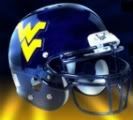Post by elp525 on Mar 9, 2010 5:43:02 GMT -5
Monday March 8, 2010
by Jack Bogaczyk
Daily Mail Sports Editor
One week for one bid. Who gets to go dancing? I sat down Monday morning and afternoon and projected my own NCAA Tournament field. It's a lot cheaper that way than the way the NCAA Division I Men's Basketball Committee will do it later this week, holed up in an Indianapolis hotel on room service.
I used as many tools as possible - RPI, strength of schedule, top 25 and 50 records, non-conference strength of schedule, head-to-head, road wins, teams playing well late (and not so well), Diet Coke, turkey sandwich, pretzels ...
I found what I expected to find.
Usually when you do this exercise the week heading toward Selection Sunday, you have too many teams for 65 berths. This time, I came up with 64 (that I felt were) "in." If that's the case, it's a one-week battle for one berth.
Anyway, here's the Bogaczyk bracketology:
Single-bid conferences: 21 (that leaves 10 automatics and 34 at-large berths).
Multiple bid leagues:
Big East (8) - Syracuse, West Virginia, Pitt, Villanova, Marquette, Louisville, Georgetown, Notre Dame.
Big 12 (7) - Kansas, Kansas State, Texas A&M, Baylor, Texas, Missouri, Oklahoma State.
ACC (6) - Duke, Maryland, Virginia Tech, Florida State, Clemson, Wake Forest.
Southeastern (5) - Kentucky, Vanderbilt, Tennessee, Ole Miss, Florida.
Big Ten (4) - Ohio State, Purdue, Michigan State, Wisconsin.
Mountain West (4) - New Mexico, BYU, UNLV, San Diego State.
Atlantic 10 (3) - Temple, Xavier, Richmond.
Conference USA (2) - UTEP, Memphis (or UAB; a hedge, OK?)
Pac-10 (2) - California, Washington (or Arizona State).
West Coast (2) - Gonzaga, St. Mary's.
That leaves one bid (and it would go to a Butler or Utah State, should they lose in an upset final in one of those one-bid conferences).
Some prognosticators like USF for a ninth Big East bid, but the only way I see that is if the Bulls, after dispatching DePaul, then reach a Garden quarterfinal and also beat Georgetown. A win over DePaul is not going to impress the committee. However, a win over the awful Blue Demons today would make USF 20-11, and there's this:
Since the Big East gained automatic NCAA Tournament qualification in 1983, all except three of 123 Big East teams that had at least 20 wins (post-Big East tournament) got an NCAA bid. The exceptions were Syracuse in 2002 (20-11) and 2007 (22-10) and West Virginia in 2007 (22-9), when the Mountaineers went on to win the NIT.
If Seton Hall (18-11) gets by Providence and Notre Dame and into the Big East quarters, the Pirates would look an awful lot like the Bulls - but also have a much better strength of schedule (31st to 54th, currently).
I think the Memphis-UAB semifinal Friday in the C-USA tournament could be an NCAA playoff, as well as a likely Washington-Arizona State late Friday night semifinal in the Pac-10 for a spot.
Georgia Tech's drag of a regular-season finish probably cost the ACC a seventh spot, although if the Jackets beat North Carolina and then stun Maryland in a quarterfinal Friday they could be ramblin' instead of a wreck.
If Tech is still in the running, then so are Rhode Island, Mississippi State, Illinois and Minnesota. I still think URI is very viable if it can win at least two games (over St. Joseph's and fellow bubble-sitter Saint Louis) in the Atlantic 10 tournament.
You want seeds? Well, on the S-curve the NCAA uses, I'm going with Kansas, Kentucky, Syracuse and Duke as the No. 1s, in that order, with Ohio State, Kansas State, West Virginia and New Mexico as the No. 2s (5-6-7-8 in order, putting WVU and UK into the same regional bracket, likely the East, because Syracuse can't play a regional at its home Carrier Dome).
The fact that there aren't about 40-42 legitimate "we belong" teams trying to cram into 34 at-large spots tells you what kind of season this is in college hoops.
And barring multiple major, major upsets in the next few days, it also will be the first time that North Carolina, UCLA and Connecticut have all missed the NCAA field in the same year since the Texas Western-winning bracket of 1966. Arizona's streak of 25 straight NCAA bids appears finished, too.
Tournament expansion to 96 teams? Who needs it? We already have enough pretenders.
by Jack Bogaczyk
Daily Mail Sports Editor
One week for one bid. Who gets to go dancing? I sat down Monday morning and afternoon and projected my own NCAA Tournament field. It's a lot cheaper that way than the way the NCAA Division I Men's Basketball Committee will do it later this week, holed up in an Indianapolis hotel on room service.
I used as many tools as possible - RPI, strength of schedule, top 25 and 50 records, non-conference strength of schedule, head-to-head, road wins, teams playing well late (and not so well), Diet Coke, turkey sandwich, pretzels ...
I found what I expected to find.
Usually when you do this exercise the week heading toward Selection Sunday, you have too many teams for 65 berths. This time, I came up with 64 (that I felt were) "in." If that's the case, it's a one-week battle for one berth.
Anyway, here's the Bogaczyk bracketology:
Single-bid conferences: 21 (that leaves 10 automatics and 34 at-large berths).
Multiple bid leagues:
Big East (8) - Syracuse, West Virginia, Pitt, Villanova, Marquette, Louisville, Georgetown, Notre Dame.
Big 12 (7) - Kansas, Kansas State, Texas A&M, Baylor, Texas, Missouri, Oklahoma State.
ACC (6) - Duke, Maryland, Virginia Tech, Florida State, Clemson, Wake Forest.
Southeastern (5) - Kentucky, Vanderbilt, Tennessee, Ole Miss, Florida.
Big Ten (4) - Ohio State, Purdue, Michigan State, Wisconsin.
Mountain West (4) - New Mexico, BYU, UNLV, San Diego State.
Atlantic 10 (3) - Temple, Xavier, Richmond.
Conference USA (2) - UTEP, Memphis (or UAB; a hedge, OK?)
Pac-10 (2) - California, Washington (or Arizona State).
West Coast (2) - Gonzaga, St. Mary's.
That leaves one bid (and it would go to a Butler or Utah State, should they lose in an upset final in one of those one-bid conferences).
Some prognosticators like USF for a ninth Big East bid, but the only way I see that is if the Bulls, after dispatching DePaul, then reach a Garden quarterfinal and also beat Georgetown. A win over DePaul is not going to impress the committee. However, a win over the awful Blue Demons today would make USF 20-11, and there's this:
Since the Big East gained automatic NCAA Tournament qualification in 1983, all except three of 123 Big East teams that had at least 20 wins (post-Big East tournament) got an NCAA bid. The exceptions were Syracuse in 2002 (20-11) and 2007 (22-10) and West Virginia in 2007 (22-9), when the Mountaineers went on to win the NIT.
If Seton Hall (18-11) gets by Providence and Notre Dame and into the Big East quarters, the Pirates would look an awful lot like the Bulls - but also have a much better strength of schedule (31st to 54th, currently).
I think the Memphis-UAB semifinal Friday in the C-USA tournament could be an NCAA playoff, as well as a likely Washington-Arizona State late Friday night semifinal in the Pac-10 for a spot.
Georgia Tech's drag of a regular-season finish probably cost the ACC a seventh spot, although if the Jackets beat North Carolina and then stun Maryland in a quarterfinal Friday they could be ramblin' instead of a wreck.
If Tech is still in the running, then so are Rhode Island, Mississippi State, Illinois and Minnesota. I still think URI is very viable if it can win at least two games (over St. Joseph's and fellow bubble-sitter Saint Louis) in the Atlantic 10 tournament.
You want seeds? Well, on the S-curve the NCAA uses, I'm going with Kansas, Kentucky, Syracuse and Duke as the No. 1s, in that order, with Ohio State, Kansas State, West Virginia and New Mexico as the No. 2s (5-6-7-8 in order, putting WVU and UK into the same regional bracket, likely the East, because Syracuse can't play a regional at its home Carrier Dome).
The fact that there aren't about 40-42 legitimate "we belong" teams trying to cram into 34 at-large spots tells you what kind of season this is in college hoops.
And barring multiple major, major upsets in the next few days, it also will be the first time that North Carolina, UCLA and Connecticut have all missed the NCAA field in the same year since the Texas Western-winning bracket of 1966. Arizona's streak of 25 straight NCAA bids appears finished, too.
Tournament expansion to 96 teams? Who needs it? We already have enough pretenders.





